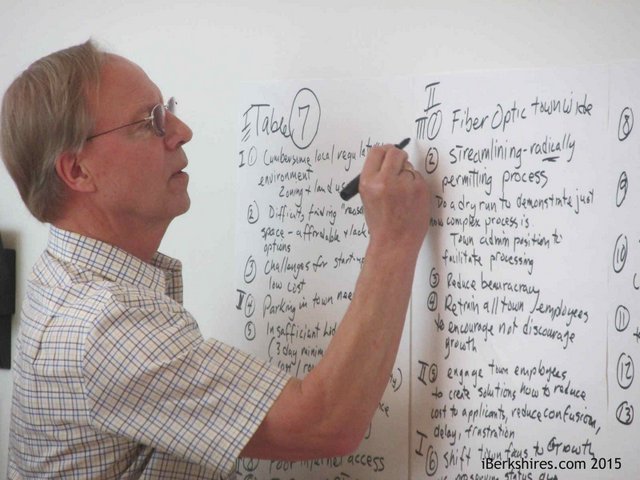 Realtor and Economic Development Committee member Paul Harsch records input from his group at Thursday's forum. Realtor and Economic Development Committee member Paul Harsch records input from his group at Thursday's forum. |
WILLIAMSTOWN, Mass. — The town's Econcomic Development Committee got an earful from the business community on Thursday.
Parking for brick-and-mortar businesses, better Internet service for companies that want to do business online and less red tape for all were some of the common concerns at a forum hosted by the committee.
"It there are two big problems, they would be parking and parking," deadpanned committee member Stephen Sheppard. "And the third problem would be parking. And, not to be redundant, there's also parking.
"It's a serious problem. It's a challenge and a constraint to business."
Sheppard was reporting out to the whole group from a 30-minute brainstorming session at one of eight tables set up for the lunchtime meet at the Clark Art Institute's Lunder Center at Stone Hill.
The EDC used the same format it had for two public forums in May. This time, the committee targeted the business community by inviting entrepreneurs to the session.
About 50 business people — some sole proprietors as well as representatives from larger firms — attended the meeting.They were grouped about six to a table with a member of the committee at each table to facilitate the discussion and record ideas.
Those ideas were wide ranging and included things like workforce development, town-led efforts to market the community and better communication from the town's two largest institutions, the Clark and Williams College.
But most of the small working groups expressed the same frustrations, including the lack of parking in the Spring Street and Water Street areas.
One group suggested there are "hidden" parking spaces in the town's Village Business District that are underutilized and that the area could benefit from more signage. Another group suggested that the town engage the college about making some of its parking available for the public during the summer months.
In addition to talking about how to increase parking downtown, several attendees said the town needs better public transportation. In particular, it was suggested that bus service be made available later in the evening to accommodate workers at downtown businesses whose shifts end after dark.
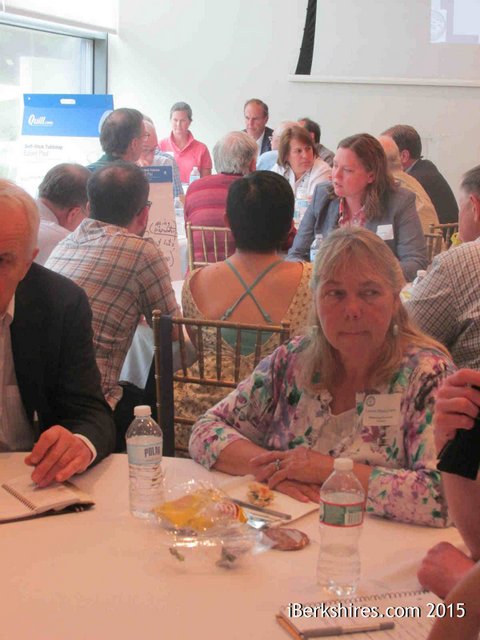 Participants broke into groups to discuss challenges to local business. Participants broke into groups to discuss challenges to local business. |
Labor needs were on the minds of several of the meeting's participants. Some pointed to a lack of skilled labor, others suggested the town ramp up its efforts to foster affordable housing — including multifamily housing.
At least one table noted that the town's zoning bylaws are an impediment to such housing, and that was just one criticism of town regulations expressed at the forum.
Frequently, the complaints centered on a regulatory process that many said was restrictive and confusing for new or expanding businesses.
"By far the big concern was the regulatory process," EDC member and Selectman Andrew Hogeland reported from his group. "Make the process better, clearer, cleaner and easier to understand."
"There's a general feeling the town is difficult to work with," EDC member Sandra Thomas said. "And it's a reality for some folks that it is difficult to work with."
Not all issues were universal. While many mentioned broadband as a priority for the town, Sheppard said it was worth noting that no one at his table said connectivity is an issue for their business.
All of the complaints and suggestions that were recorded at the meeting will help inform the Economic Development Committee's discussions as it moves toward its final report, expected late this year or early next year.
"We want to increase the opportunity for economic growth in the community," EDC Chairman Jeffrey Thomas said, explaining the committee's mission. "Our purpose is to identify and prioritize strategies to improve the local economy and recommend them to the Board of Selectmen."
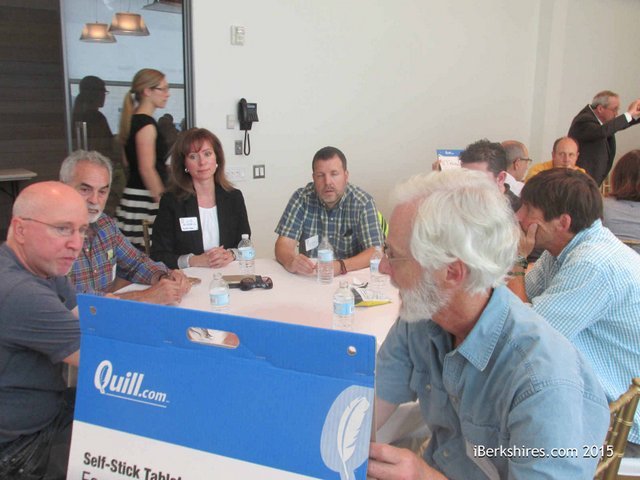
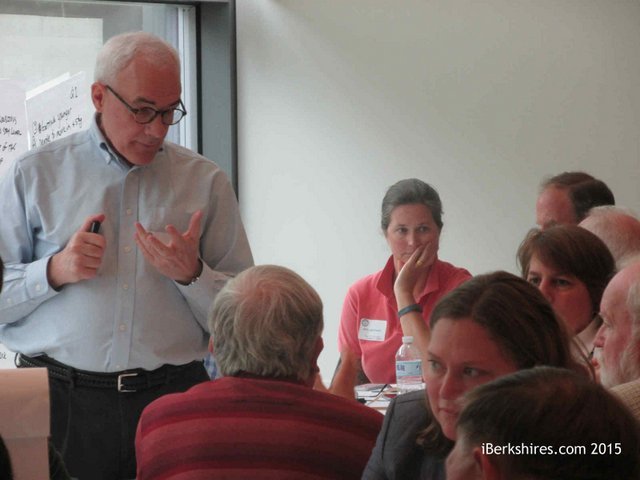
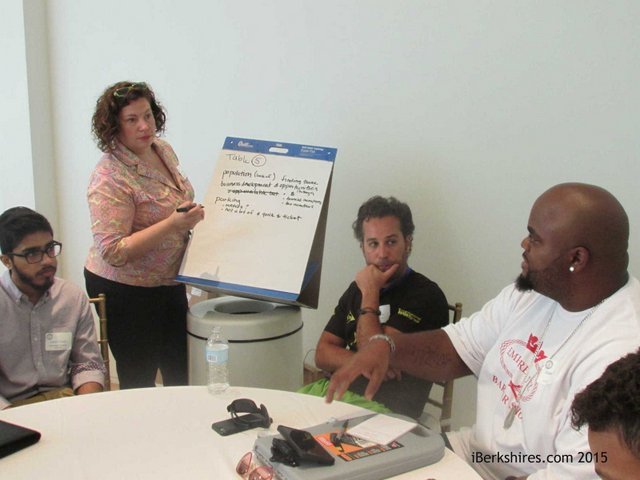
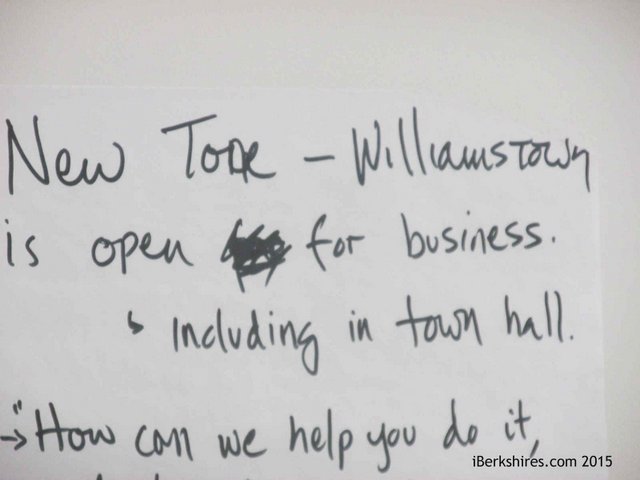
 Realtor and Economic Development Committee member Paul Harsch records input from his group at Thursday's forum.
Realtor and Economic Development Committee member Paul Harsch records input from his group at Thursday's forum. Participants broke into groups to discuss challenges to local business.
Participants broke into groups to discuss challenges to local business.














